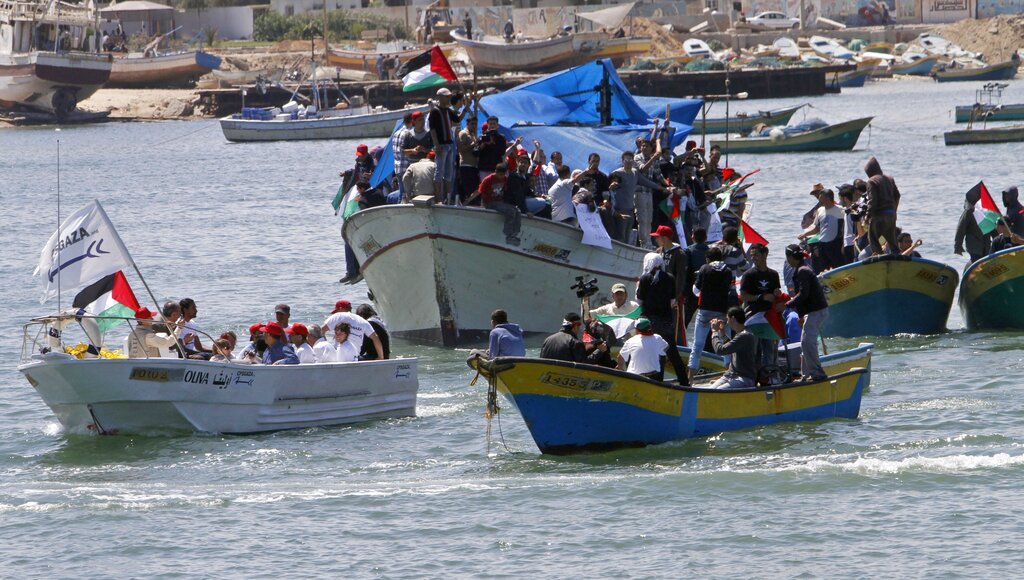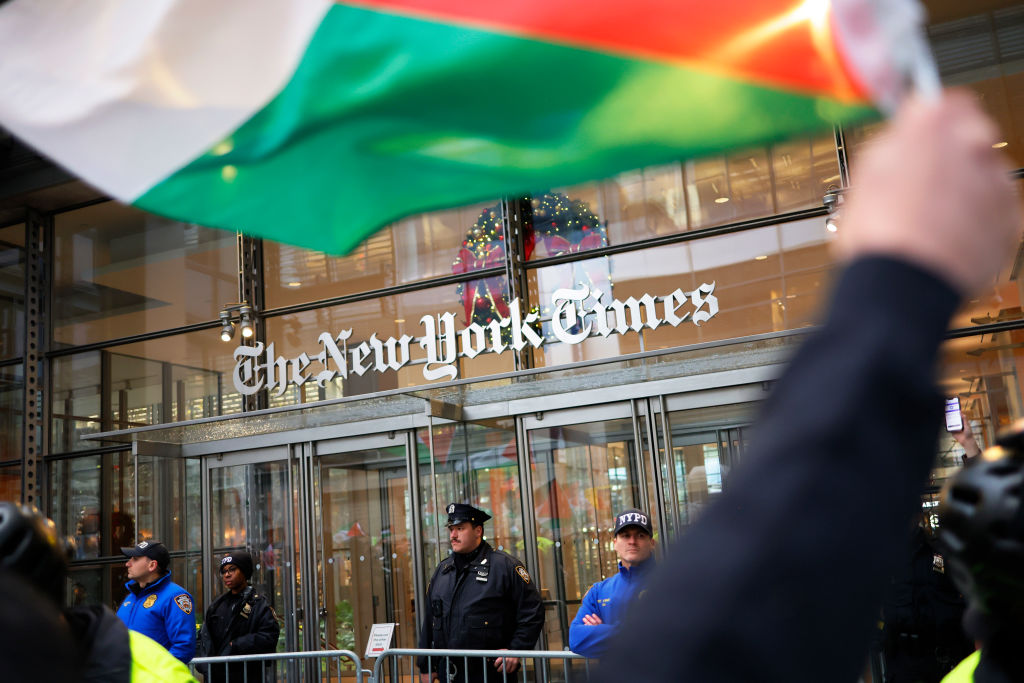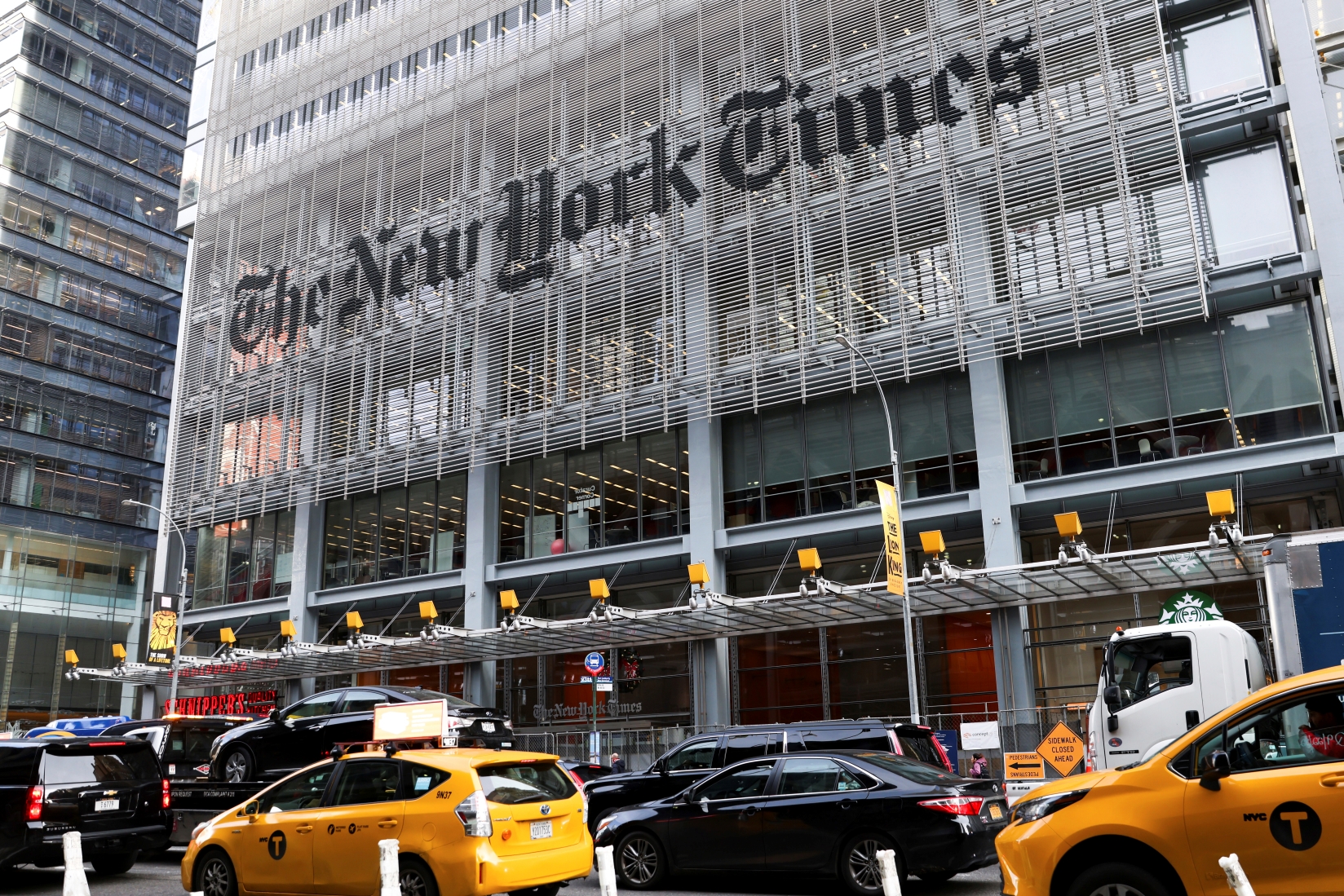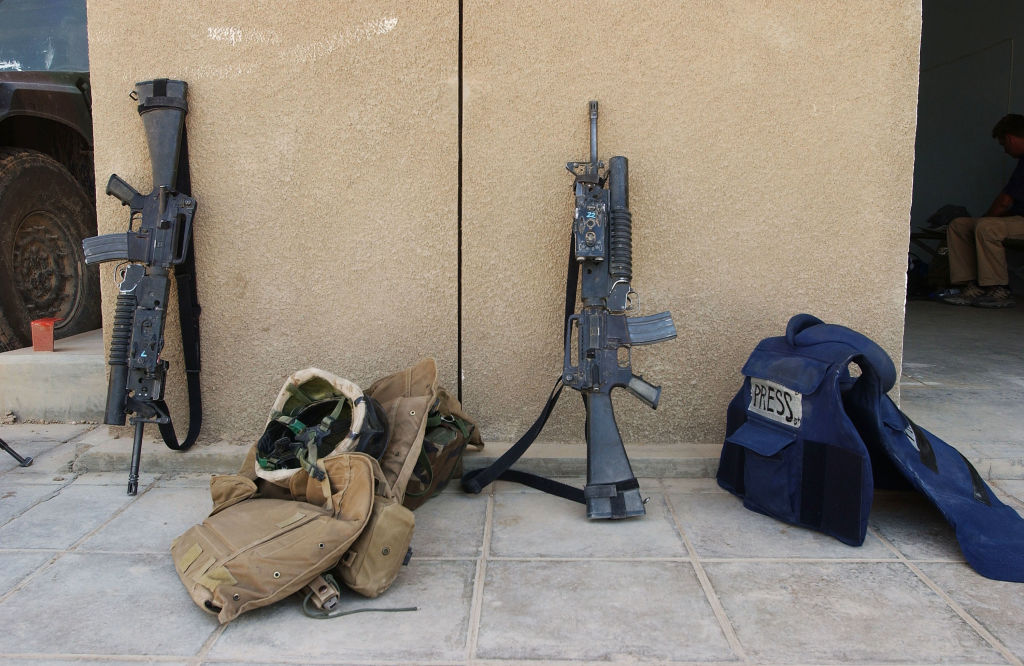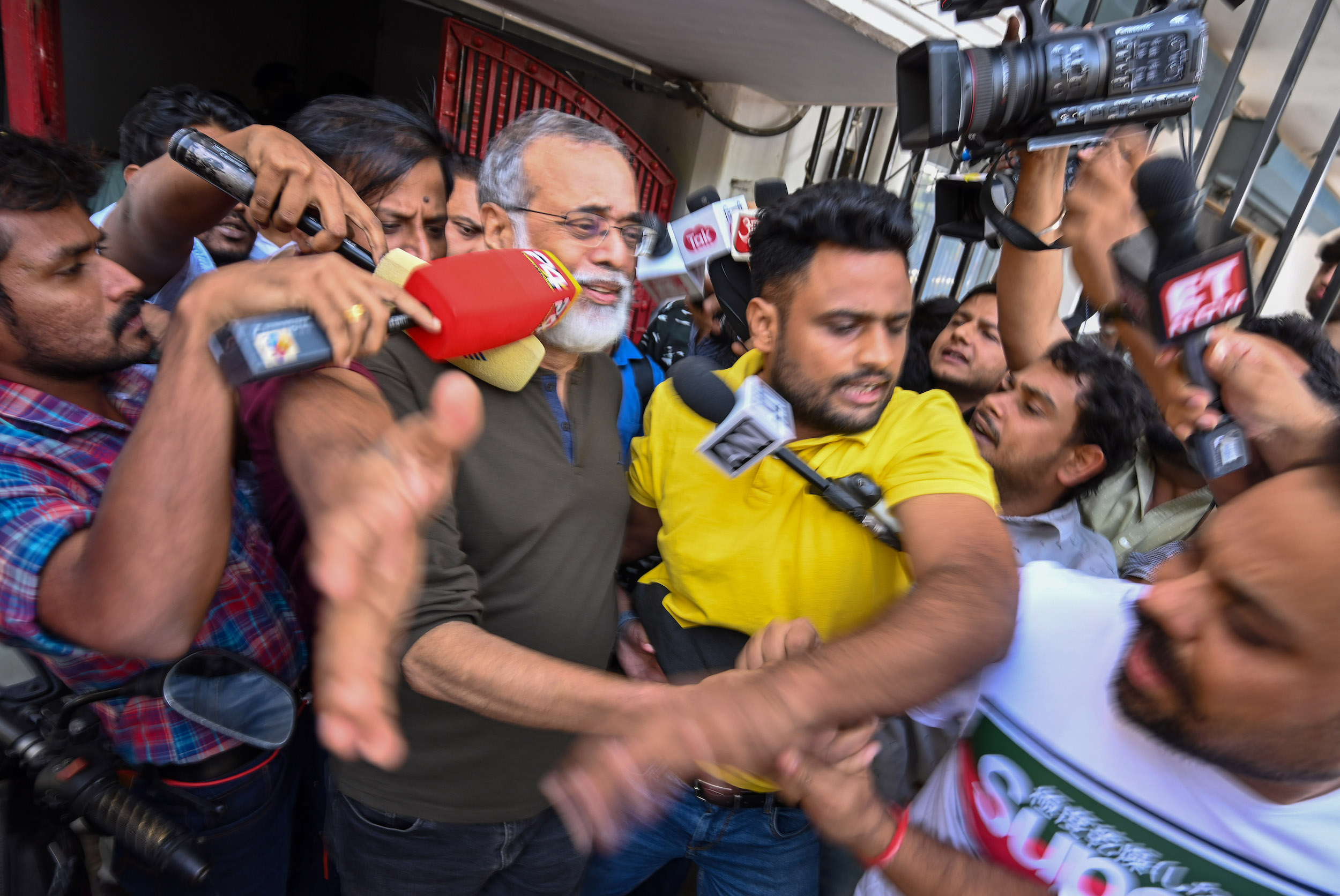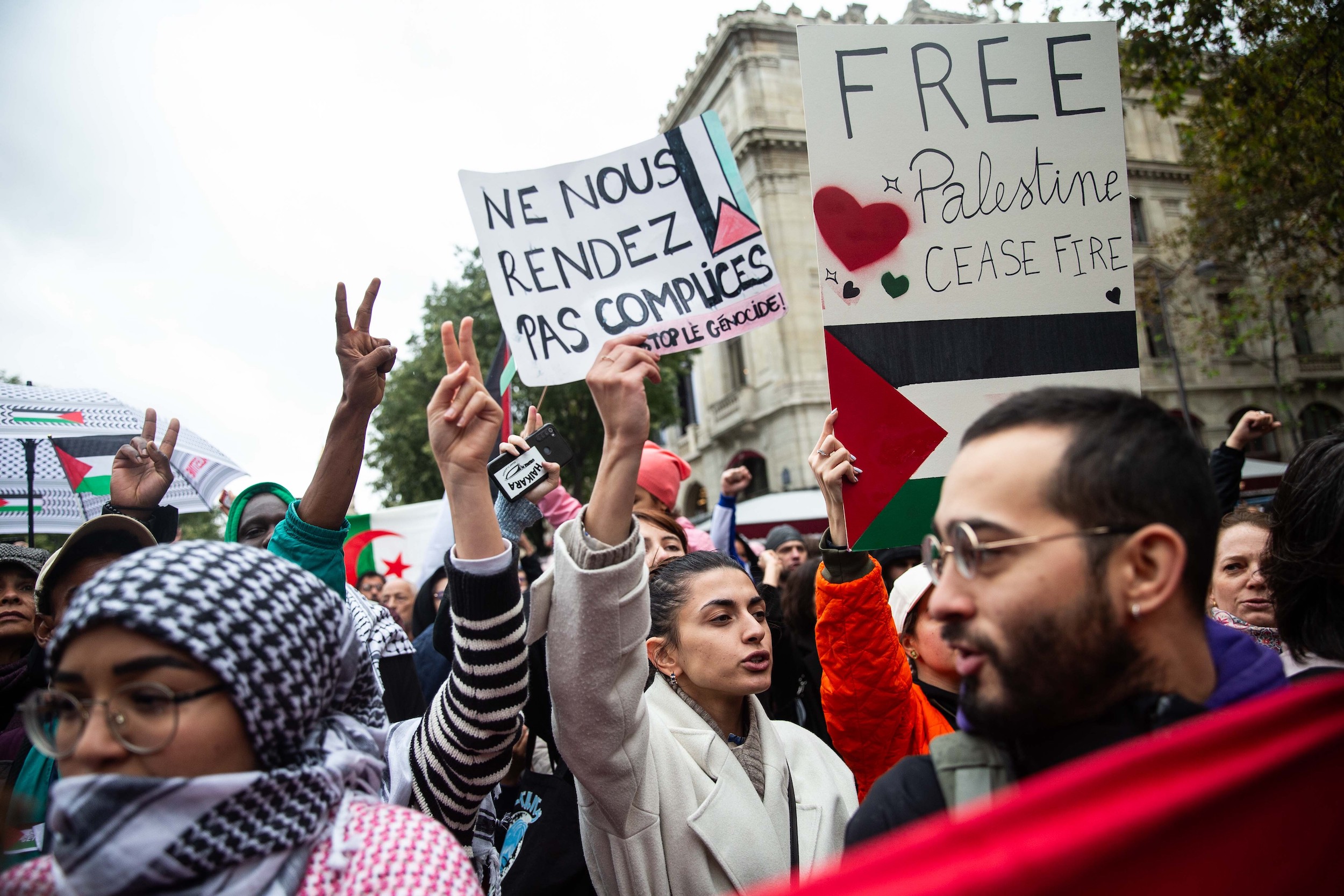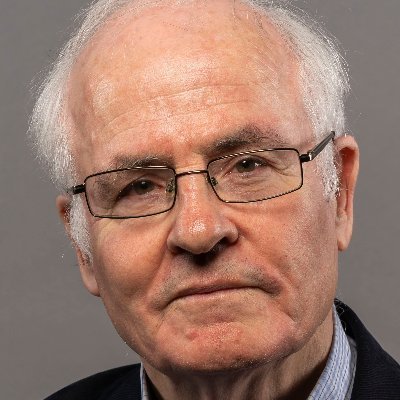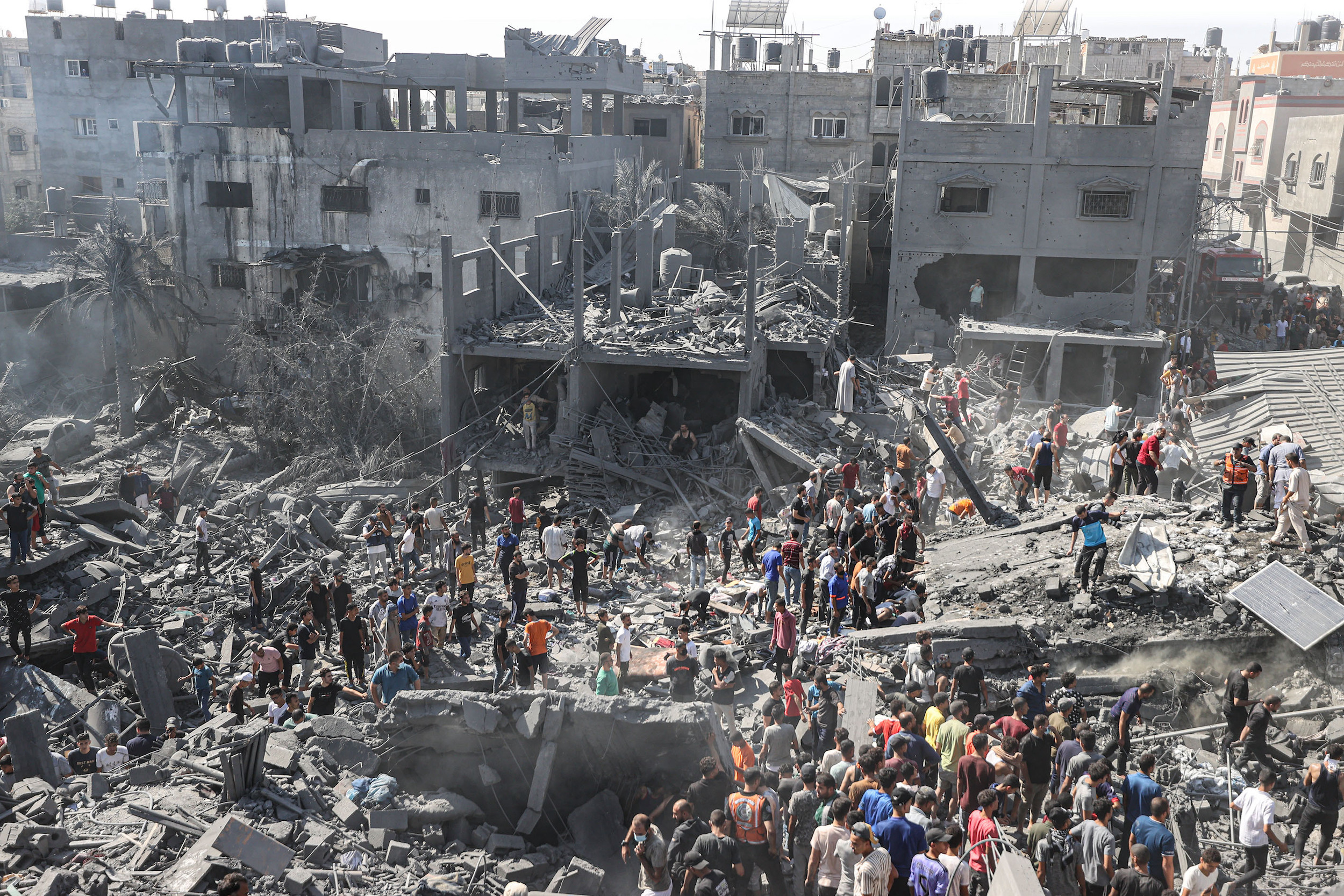Dehumanisation of Palestinians is as central to Israel’s war strategy as the deadly missiles it wields
Israel has waged war on Palestinians for decades.
That fact may come, I suspect, as a surprise to many people whose grasp of the world is shaped by their exclusive consumption of Western media.
The deep and lasting human consequences of Israel’s terrifying, perpetual war on Palestinians – prosecuted with indiscriminate cruelty by an occupying army and its de facto proxies, fanatical settler militias – have been plain for anyone willing or inclined to see, for generations.
Countless lives lost and maimed in body and spirit. Land and homes stolen. Livelihoods and ancient traditions destroyed. The exhausting cycle of having to rebuild, then watching all the promise and possibility turn, in an instant, to dust. The wholesale imprisonment of a people penned like cattle behind walls and barbed wire fences, where water and electricity, food and fuel, are switched on and off on a colonial power’s whim.
But, of course, much of the Western media won’t acknowledge these facts and outrages. That’s because many of the reporters and columnists now gripped by the latest eruption of murderous madness in Palestine and Israel have always interpreted events through a prism chiefly dictated by Israel – whether they are prepared to admit it or not.
In this myopic calculus, Israel is always the victim, never the perpetrator. Israel’s understanding of history matters; Palestinians’ reading not only of the past but of the present and the future too, does not count. And, perhaps most indecent of all, Israeli lives and deaths matter; Palestinian lives and deaths don’t.
Riyad Mansour, the Palestinian ambassador to the United Nations, made this point in a quiet, but persuasive address he delivered on Sunday to that apparently powerless body.
“History,” he said, “begins for some media and politicians when Israelis are killed. Our people have endured one deadly year after another”.
Mansour recounted the repeated warnings he and other exasperated Palestinians have issued – time and again – of the potential “consequences of Israeli impunity and international inaction”.
He was not alone.
Human rights groups based in Jerusalem, London and New York have published report after report that establishes, as a matter of international law, that Israel has, for a long time, been guilty of apartheid – a state-sanctioned, systemic policy to impose ethnic supremacy over besieged Palestinians with brutal, grinding efficiency.
Implicit in those dense, meticulously chronicled studies was what amounted to a blazing flare intended to seize finally the flighty attention of complicit Western governments and media. Israel’s deliberate, organised oppression is not only unsustainable, it disfigures both the oppressor and the oppressed. Ultimately, violence begets violence in round after round of horrific vengeance by both sides.
Predictably, the cautions were not heeded.
Instead, many Western news outlets either dismissed outright or used the familiar vocabulary of denial to obscure the blatant truth.
Others opted for wilful malpractice, preferring to devote time and resources to the death of a celebrity dog over the documented theft, deprivations and indignities endured by Palestinians – young and old.
At the core of this blindness is a shared doctrine that holds that a Palestinian is a disposable non-entity, an expendable by-product of Israel’s right to exist and to defend itself.
In this perverse construct, Palestinian civilians are not considered innocent casualties of war but remain largely responsible for their own deaths and desperate fates.
The result: Western columnists will defend Israel – without so much as a hint of doubt or equivocation – despite its demonstrable record of erasing Palestinians whenever it wants, wherever it wants, for whatever reason it wants.
The sad, human evidence abounds.
Mahmoud al-Saadi, an 18-year-old student, was erased by Israel while walking to school in the Jenin refugee camp last November.
Mohammad al-Tamimi, a two-and-a-half-year-old toddler was erased by Israel while he was sitting in his father’s car parked outside their home in Nabi Saleh, a village northwest of Ramallah in the occupied West Bank, as he waited to go to a birthday party in June 2023.
Shireen Abu Akleh, a 51-year-old Palestinian-American journalist was erased by Israel while she was preparing to report on yet another raid in Jenin in May 2022.
Dr Izzeldin Abuelaish, a 67-year-old Palestinian-Canadian physician, scholar and humanitarian, witnessed three of his daughters – Bessan, 21, Mayar, 15, Aya, 13 – and a niece, Noor, 17, being erased when Israeli tank shells shattered the family home in the Gaza Strip in January 2009.
Omar Abdulmajeed Asaad, a 78-year-old Palestinian-American retiree was erased by Israel while en route home to Jiljilya, a town a little northeast of Ramallah in the West Bank, after an evening playing cards with friends in January 2022. Soldiers marched Asaad to a nearby construction site and dumped him onto cold stone pavers. That’s where he died of a “stress-induced heart attack”. Alone.
Twelve-year-old Hassan Abu al-Neil was erased by Israel on August 21, 2021 while standing on what remains of Palestinian soil in Gaza in defiance of the occupation.
The lethal ledger goes on and on and on.
In the awful days, weeks and potentially months ahead, a gallery of writers will, no doubt, stand rhetorically shoulder-to-shoulder with Israel’s Prime Minister Benjamin Netanyahu and his appalling calls to impose a total blockade on Gaza and bludgeon it into a “deserted island” in the wake of Hamas’s ruthless onslaught.
Netanyahu’s chilling vow to, in effect, obliterate Gaza and his warning to the 2 million Palestinians who live in that thin strip of land to “get out” is the inevitable expression of apartheid, which is predicated on the dehumanisation of an entire people.
As Palestinian-American writer, Ra’fat Al-Dajani, has explained, the dehumanisation of Palestinians is based on two tenets widely held among Western media: “Palestinians are violent because of who they are – because of something intrinsic in their very nature and culture,” Dajani wrote, rather than “because of the oppression and violence of the Israeli occupation”. As a corollary to this, “since Palestinians lack basic standards of morality… the only way to interact with them is through the use of force, whether state-sponsored force by the Israeli security forces or non-state actors such as Israeli settlers. Force is the only language they understand.”
Both of these blasphemies have already been on display on Western cable news channels’ 24/7 loop and in opinion pages featuring the usual parade of Israeli-aligned officials and pundits.
In rebuttal, Mansour was obliged, remarkably, to state the obvious: “We [Palestinians] are not sub-humans. Let me repeat: We are not sub-humans. We will never accept a rhetoric that denigrates our humanity and reneges our rights. A rhetoric that ignores the occupation of our land and oppression of our people.”
Mansour defended the resistance as an understandable response to Israel’s longstanding war on Palestinians, saying: “Israel cannot wage a full-scale war on a nation, its people, its land, its holy sites and expect peace in exchange.”
In the end, the ambassador said, Palestinians, and Palestinians alone, will decide their destiny. “The Palestinian people will be free one day or another, one way or another,” Mansour said.
He is right.
Andrew Mitrovica is a columnist for Al Jazeera English, based in Toronto
The views expressed in this article are the author’s own and do not necessarily reflect Al Jazeera’s editorial stance



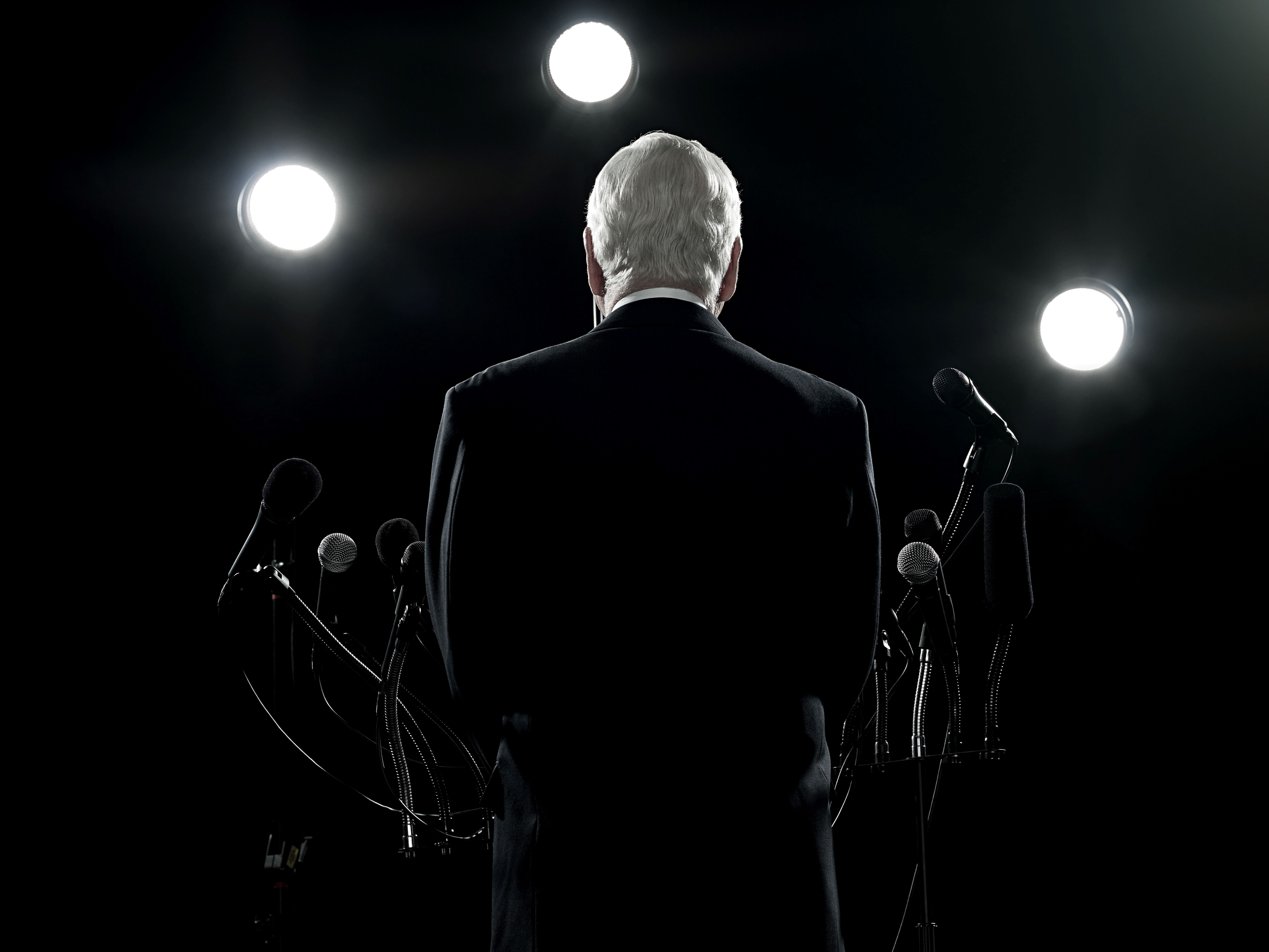



















![A demonstration against Israel's war on Gaza on Paulista Avenue in São Paulo on November 4, 2023, draws attention to the deaths of children while the media focuses on the war against terrorists. [Photo: Lina Bakr]](/sites/default/files/ajr/2024/Picture1.png)

